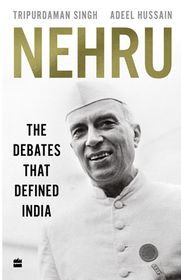In August 1936, Jawaharlal Nehru braved heavy rain in Lucknow to reach the Ganga Prasad Memorial Hall, where he joined Muhammad Ali Jinnah on stage. They were to address an All India Students’ Federation event; this was the only time the two shared a podium.
Jinnah praised Nehru for “his sincerity and genuineness of purpose”. He said that while they were speaking for different political bodies, their love for their “motherland was common”. Nehru was less conciliatory. He called Jinnah a “distinguished leader”, and done with pleasantries, went through a long list of issues that differentiated his vision of India from Jinnah’s.
Nehru saw the communal question as a conservative reaction to progressive forces. He felt that employing religious identities as the primary driver in politics, as Jinnah did with his Muslim League, had made the latter “petty-minded”. It had also distracted him “from the real problems of the country”.
The debates that had a role in shaping the future of the Indian subcontinent are now part of a book titled Nehru—The Debates That Defined India, written by academics Tripurdaman Singh and Adeel Hussain.
Nehru was known for his immense capacity for argument, and he dove into debates with tremendous passion and presented his side with great articulation and unparalleled knowledge. Jinnah was one of his many intellectual jousting partners. The book also features debates that Nehru had with poet-philosopher Muhammad Iqbal, colleague Vallabhbhai Patel and ideological adversary Syama Prasad Mookerjee.
With Iqbal, Nehru had a long-running debate about the political wisdom of the talk of Islamic solidarity. Nehru believed in an inclusive nationalism and a democratic future with joint electorates. Later, Nehru claimed that Iqbal’s shift to socialism was visible in his later poetry and prose, and that he had realised that a separate Muslim state on Indian soil was not a viable solution to counter Muslim backwardness.
The book also explores the differences between Nehru and Patel on China. In a letter he wrote to Nehru on November 7, 1950, Patel deprecated the pathetic state of Indian diplomacy and called for a comprehensive review of Sino-Indian relations. “Recent and bitter history also tells us,” Patel observed, “that communism is no shield against imperialism.”
With Mookerjee, Nehru had clashed in Parliament over the First Amendment to the Constitution—the verbal duel has been described as one of the finest oratorical battles in Indian parliamentary history. The First Amendment, which Nehru moved on May 16, 1951, was his way of constraining the fundamental rights that he felt were a roadblock to his plans of social transformation. An angry Mookerjee had countered the move by telling Nehru that he was “treating this Constitution like a scrap of paper”.
Nehru, as the authors of the book note, might no longer be alive to answer his critics, but his ideas remain locked in ideological combat, reviving debates that many thought were settled by history.
Nehru: The Debates That Defined India
By Tripurdaman Singh and Adeel Hussain
Published by Harper Collins
Pages: 275, Price: Rs599


